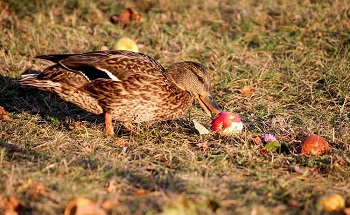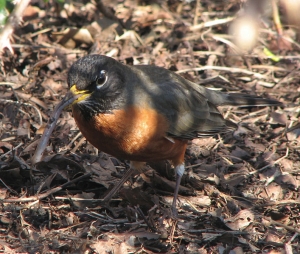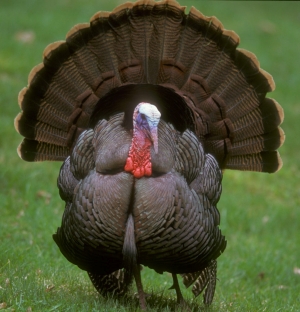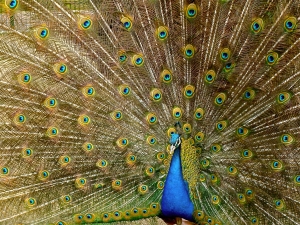Did you know that ducks are found on every single continent in the world except for Antarctica? Ducks have special features that make it easier for them to get food. All ducks have waterproof feathers that protect their down under layer while they are in the water searching for food. Ducks also have bills that are shaped differently depending on the type of food they like to eat.
So what do ducks like to eat? Some ducks are dabbling ducks. This means that they stay near the surface of the water to find food. If you have ever seen a duck with its head in the water and its tail in the air, then you were watching a dabbling duck catching its food.
Other ducks are diving ducks. These ducks put more than just their heads in the water. They actually dive down below the surface of the water to catch their food. Diving ducks eat more fish than dabbling ducks.
All ducks are omnivores, so they eat a combination of plants and animals. Some of the plants that ducks eat are grass, weeds, algae, seeds, grain, berries, fruit and aquatic plants. Some of the animals that ducks eat are snails, mollusks, worms, frogs, salamanders, small fish and fish eggs. Ducks also eat insects.
One species of duck called the Merganser eats mostly fish. This is because the Merganser has a narrow-shaped bill that contains teeth. This design makes it easier for the Merganser to eat fish.
Many ducks also eat gravel, small stones or sand. While these items do not provide any nutritional value for ducks, gravel, stones, and sand actually help ducks digest their food better. The rough texture helps break down the duck’s food.
What Do Ducks Eat In the Wild?
Like humans, wild ducks must also maintain a balanced diet in order to get the nutrients it needs to grow and survive in the wilderness. A wild duck’s environment is a big influence on what it eats because a duck’s available sources of food are limited by what is in its natural habitat.
So what do ducks eat in the wild? Most wild ducks are found living near water. This habitat offers a wide variety of plant and animal matter. Wild ducks often feed on aquatic plants, algae, grass and weeds found near the water’s surface. Wild ducks also eat insects, worms, frogs and fish found in or around water. Diving ducks have a diet that includes more fish, so these wild ducks travel below the water’s surface to catch their meals. Newborn wild ducks often travel for miles with their mother to look for food that is rich in nutrients.
Wild ducks will eat almost anything they can get their bills on, but this does not mean that all food is good for them. For example, bread is not a good source of nutrition for wild ducks, because it does not contain many nutrients. People who are interested in feeding wild ducks should offer cracked corn, chopped vegetables or lettuce leaves instead of bread crumbs.
What Do Pet Ducks Eat?
If you have ever thought about owning a pet duck, then you are probably wondering what do pet ducks eat? Like wild ducks, pet ducks are omnivores, so their diet should include the nutrients provided by both plants and animals.
Many owners of pet ducks feed their ducks with bird feed. For a few weeks, new ducklings, or baby ducks, should be given a bird feed that contains a higher percentage of protein, because ducklings need lots of protein for rapid growth. Adult ducks require less protein in general, however, female ducks need a slightly higher amount of protein when they are laying eggs.
Pet ducks will eat fresh vegetables and fruits such as lettuce and tomatoes. Corn is a feeding option for pet ducks, however, cracked corn is easier on the digestion process. Pet ducks are not limited to eating fruits and vegetables. Their diet can also include meats such as worms, night crawlers, insects and mealworms. Owners can either catch or purchase worms and insects for their pet ducks.
One important part of feeding a pet duck is providing it with plenty of fresh water to drink. Drinking fresh water is just as important as eating because water makes it easier for a pet duck to digest its food. Pet ducks can be messy eaters though and often get mud and dirt in their drinking water. Pet owners should be prepared to provide fresh drinking water frequently.
What Do Baby Ducks Eat?
When ducklings, or baby ducks, first hatch, they are born ready to travel. Ducklings hatch with their eyes open, and they also are born with a protective down covering. These are important features for ducklings, because very soon after birth, the hen, or mama duck, will often waddle with her ducklings for miles to find food sources that are rich in nutrients. Some hens and ducklings are known to have traveled three miles away from their nests just to find nutritional food. So what do baby ducks eat?
At first, ducklings do not have to worry too much about food. This is because ducklings have built-in yolk sacks, which consist of leftover egg yolk from the eggs in which the ducklings grew. The yolk sack has enough nutrients to nourish a duckling for three whole days. While ducklings are traveling with their mother to find food, the nutrients from the yolk sack keep them full.
By the time the hen and her ducklings reach the source of food, the ducklings are ready to eat. Ducklings need food that is rich in protein and fat, because these types of food sources help baby ducks grow. Some of these foods include snails, earthworms and crustaceans. Baby ducks also eat invertebrates, insects and insect larvae.
Ducklings grow very quickly, and within two weeks, they begin to look more like and eat more like adult ducks. Instead of eating only protein-rich foods, the ducks begin to incorporate more plants into their diets.
Domestic ducklings, or pet ducklings usually eat specialized duck food found at a pet store. Pet owners can offer small portions of fruits and vegetables to the baby ducks as snacks, but these treats should not be counted as a full meal. Pet ducklings need the same protein-rich and fatty nutrients as wild ducks do, because these nutrients help baby ducks grow properly. Baby ducks also need plenty of clean drinking water available.



